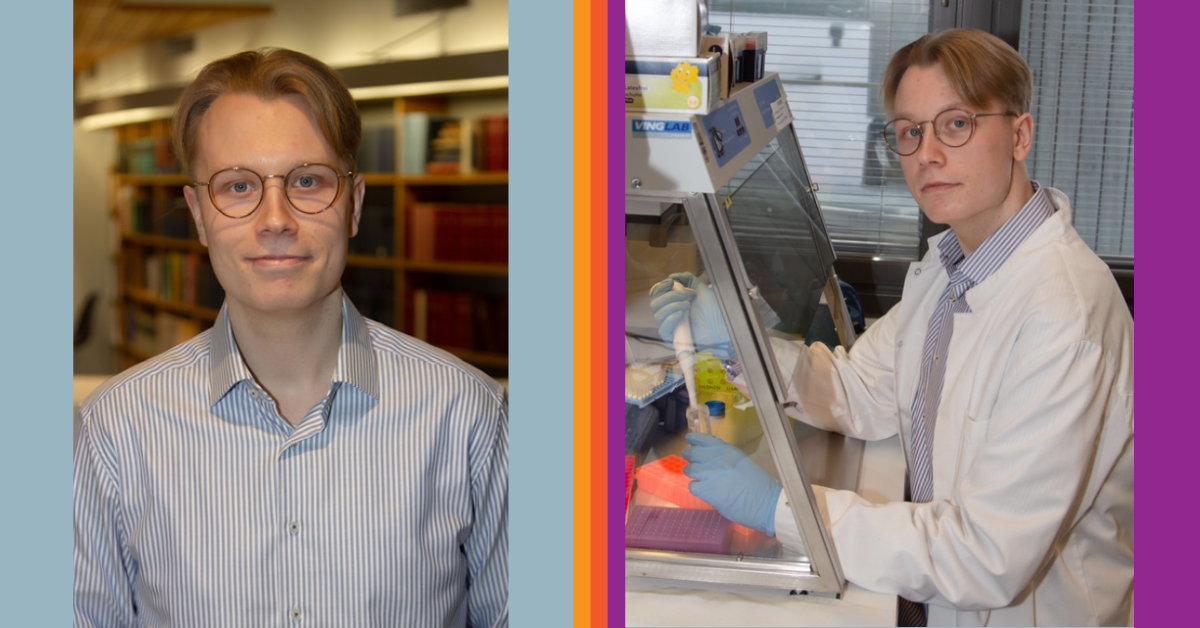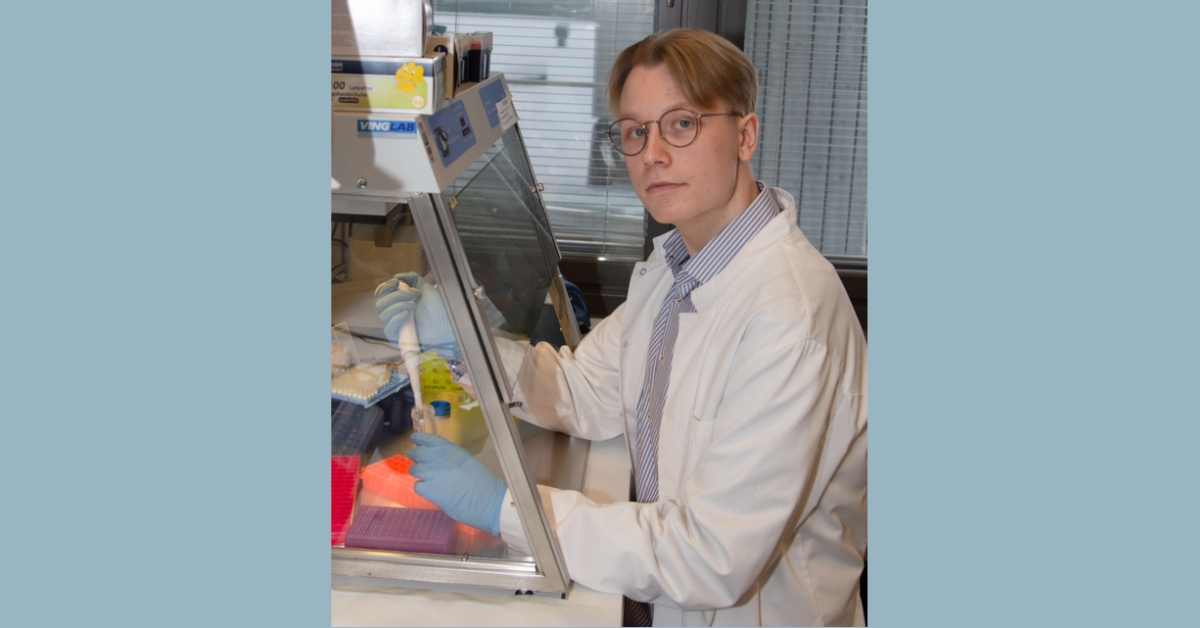Leo Hannolainen is a PhD student at the University of Helsinki, Department of Virology. He holds a master’s degree in microbiology from the University of Helsinki, and alongside his PhD research, he is also enrolled in the master’s program in bioinformatics and biostatistics at the University of Tampere. His research aims to investigate the role of persisting viruses in HSCT through in-depth genomic analyses to uncover novel biomarkers predictive of complications, as well as ex vivo studies on viral pathogenicity in the thymus.
“A research career is very cool”
Why did you become a researcher?
During my studies in the master’s program in microbiology, I developed a burning passion for clinical virology and immunology. I felt that I always wanted to understand these areas more deeply than the courses offered. I have also always enjoyed working in a lab, so continuing that after graduation felt very natural. A research career is very cool, since everyone’s path and projects are quite unique.
Academic inspiration
Who inspires you academically?
For a young researcher, good teachers and mentors play a key role in sparking inspiration. I feel that one of the biggest reasons I chose to do my PhD with my current supervisors (Maria F. Perdomo and Eliisa Kekäläinen) is because – already prior to my PhD research – they had left a lasting, inspiring impression on me through their own research contributions in the field.
Current research inspiration
What research are you reading right now for inspiration?
I am following the research of Professor Joshua Hill from the Fred Hutchinson Cancer Center, USA. He has conducted extensive research on human herpesvirus 6, a virus our group also works with. His international research output has been an important influence on our work, as his prior findings help us interpret new results in our current projects.
Scientific aspirations
What are your scientific aspirations?
My dream is to advance research on the human virome and its impact on transplantation outcomes. I hope that with our innovative, multilayered research, we can translate knowledge from the lab to the clinic, where it can make a real difference in patient care.
PMI
I unfortunately have not yet published in PMI, but I am excited to submit my future work to the journal.
At PMI, we are committed to supporting early-career researchers in pathology, microbiology, and immunology.
Find more information about publishing opportunities and our author guidelines HERE. Feel free to contact us if you have any questions or wish to discuss a potential submission – we’re happy to hear from you!

Photo credits: Eduard Petrov


